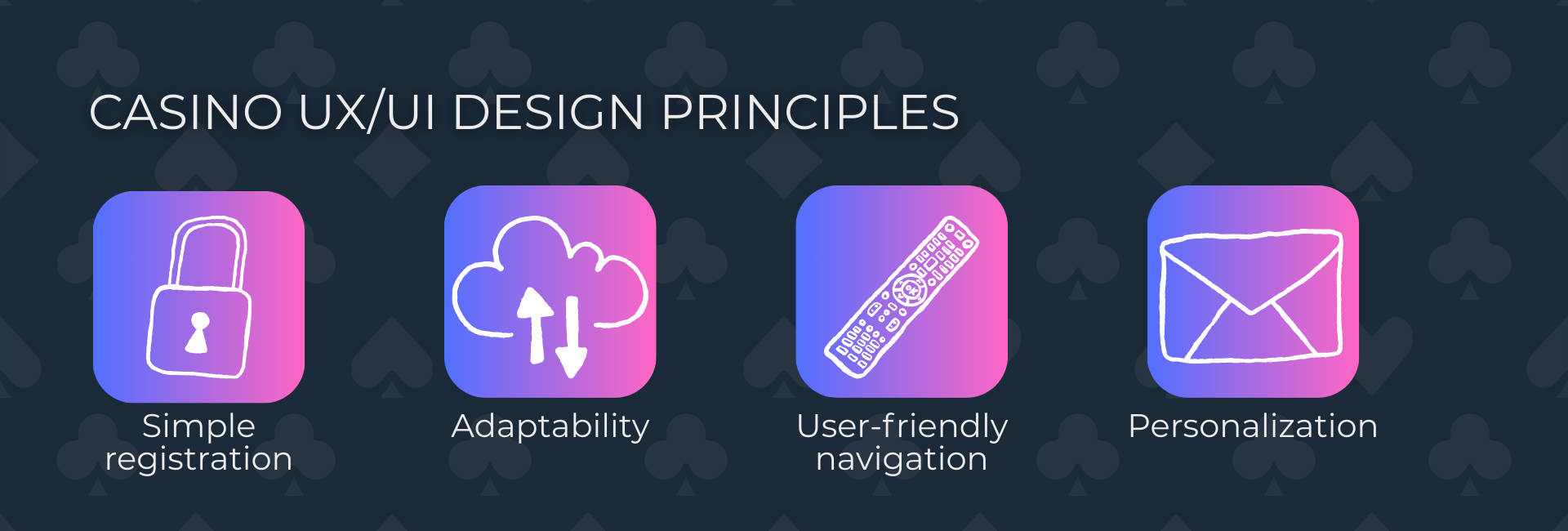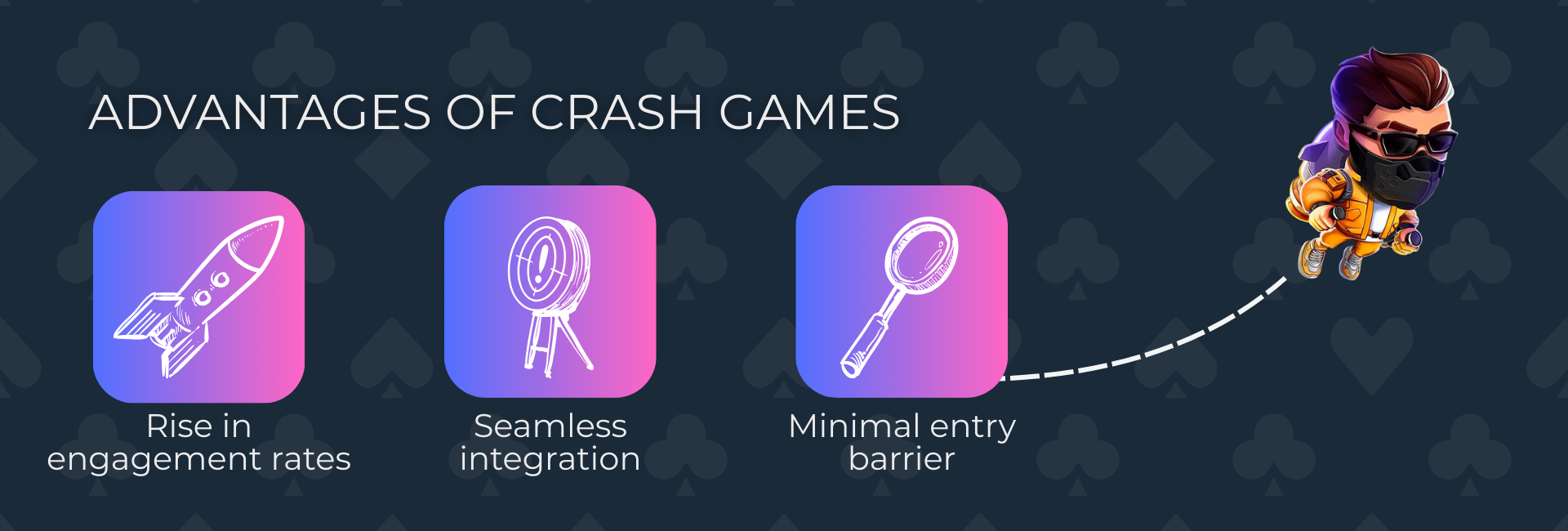 More than 70% of players now access casinos via mobile devices. But a simple “mobile website” is no longer sufficient: speed, personalization, social mechanics, and seamless crypto integration are essential.
More than 70% of players now access casinos via mobile devices. But a simple “mobile website” is no longer sufficient: speed, personalization, social mechanics, and seamless crypto integration are essential.
This article is for founders, operators, and teams launching or scaling mobile casinos. We’ll explore how to bypass App Store restrictions, integrate Web3, protect players, and launch an MVP on a lean budget — backed by data, technologies, and real business logic.
Most importantly, we’ll look at how to build a mobile casino not just as a product, but as a living system that retains players and stays competitive.
Why a Mobile Casino Is Not Just a “Website on a Phone”
According to analytics, the global online gambling market is expected to reach $160 billion in 2025. Over 60% of that revenue comes from mobile devices. But here’s the key: a mobile casino is not just a downsized desktop version. It requires a completely different approach.
Mobile User Behavior:
- Players access the casino in short bursts — 2–5 minutes in line, on transport, during breaks;
- Often with one hand, no sound, and minimal attention;
- Every extra second of loading or unnecessary tap means losing the user.
What This Means in Practice:
- UX first: users should enter the game in 2–3 taps max;
- Fast onboarding: sign in via Face ID, OAuth, or wallet — no username/password required;
- Streamlined game flow: all elements must be thumb-accessible; no scrolling or screen switching;
- Contextual interaction: offers, bonuses, and notifications must adapt to behavior (time, game type, login frequency).
A mobile casino is designed for a completely different user interaction model — and that demands new solutions in design, architecture, and monetization.
Key Mobile Gambling Trends in 2025

Mobile-First UX: Not Just a Convenience, but a Necessity
Users play on the go, often with one hand and limited attention. Over 40% of users abandon registration if it takes more than a minute (PlayEmber). A fast UX = higher conversion and engagement.
What to Do:
- Implement Face ID / OAuth login;
- Eliminate unnecessary screens;
- “One Game = One Tap” after registration;
- Keep navigation within thumb reach.

PWA and WebView Instead of App Store
Apple and Google are tightening restrictions on gambling apps. Passing moderation is increasingly difficult. Submissions can be rejected and updates delayed. PWA enables push notifications, instant updates, and store-free operation.
What to Do:
- Use WebView to transfer web functions to app wrappers;
- Deploy a full-featured PWA with analytics and push notifications;
- Build an SEO-optimized structure within the PWA.
Crash Games and PvP: Engagement Through Thrill
High-dynamic formats with a sense of control (e.g., crash games) are rapidly gaining popularity. PvP adds competition. Crash games like Aviator show 30–50% higher retention than classic slots. PvP increases virality.
What to Do:
- Integrate simple, popular crash games;
- Add tournament mechanics and leaderboards;
- Enable player-versus-player betting.

Gamification and Socialization: Players = Community
Players expect more than just spinning reels. They want goals, achievements, and interaction. Gamified casinos report up to 2x higher LTV. Chats, leveling, and customization build loyalty.
What to Do:
- Introduce missions, achievements, and progression;
- Add custom avatars and profiles;
- Enable in-game chat and scheduled tournaments.
Cryptocurrencies and Web3: More Than Just Payments
Crypto wallets are becoming a primary access and payment method for many players. NFTs and tokens aren’t just hype — they boost engagement. Crypto opens new audience segments. Web3 features (NFTs, DAOs) deepen player involvement.
What to Do:
- Integrate MetaMask, WalletConnect, Tonkeeper;
- Use NFTs as VIP or event access keys;
- Create token-based quests and missions.
AI Personalization and Smart AI Support: Player-Centric Experience
AI not only recommends content, it supports players in-game. Behavior is analyzed in real-time, and support is handled by AI bots instead of human operators. Personalization boosts engagement and average spend. AI support reduces operator workload and response time. Both tools enhance retention and align with responsible gambling standards.
What to Do:
- Implement recommendation engines for games and bonuses;
- Connect GPT-powered bots trained on FAQs and chat logs;
- Send alerts about limits, timeouts, and gameplay duration;
- Integrate support into the game interface, messengers, and social media.
Critical Elements for Launching a Mobile Casino
Launching a mobile casino isn’t just about building a game and enabling payments. It’s the intersection of legal compliance, tech solutions, and behavioral strategies. Below are three critical pillars that require deep attention.
Regulations and Licensing: Protecting the Business from Shutdowns
What You Need:
- Acquire a license (Curaçao, MGA, Isle of Man, or similar);
- Set up KYC (document, age, and country checks);
- Implement AML mechanisms (transaction and behavior monitoring);
Operating without a license puts your business at risk of payment blocks, legal action, and fines — especially critical when dealing with crypto and Web3.

Security and Player Protection: Building Trust from Day One
What You Need:
- DDoS protection and full traffic encryption;
- Anti-fraud and anti-bot mechanisms;
- Built-in self-control tools and alert systems;
Hacks, fraud, and data leaks lead to regulatory audits and mass player churn.
How to Implement:
- Integrate Cloudflare / AWS Shield for security;
- Apply behavioral analytics + limits (sessions, stakes, deposits);
- Use proactive alerts: “You’ve been playing for 30 minutes,” “Your daily limit is nearly reached.”
Marketing and Growth: Scaling from Zero to Profit
What You Need:
- A funnel from cold traffic to repeat deposits;
- Cross-channel marketing (not just media buying);
- Retention and re-engagement strategies;
Buying traffic doesn’t build a product. Most users churn within the first 3 days. Retention is key.

MVP: Minimum Viable Product
Before launch, build an MVP — a version with only essential features. It lets you test hypotheses, understand user behavior, and collect initial metrics.
Avoid bloating the MVP with secondary features. The goal is to launch a product that:
- Gives players fast game access;
- Engages and retains users;
- Meets regulatory standards;
- Gathers behavioral data;
- Runs stably on mobile.

| Component | Purpose | How to Implement |
|---|---|---|
| PWA/WebView | Bypass App Store, cross-platform | React + WebGL, Flutter |
| Crash Game | Maximize engagement | Unity + WebSocket |
| Passwordless Login | Fast entry | OAuth, Face ID, WalletConnect |
| AI Support | Cost-effective automation | GPT-4 API + scenario frameworks |
| Web3 Integration | Crypto audience, flexible payments | MetaMask, Tonkeeper API |
| Push Notifications | Retention, engagement, promotions | Firebase, OneSignal |
| Anti-Fraud & Limits | Responsible gaming, security | SaaS or custom behavioral engine |
| Basic Analytics | Behavior analysis, performance review | Mixpanel, Google Analytics, BigQuery |
With this stack, you won’t just enter the market — you’ll learn what mechanics drive player behavior, where drop-offs occur, and how to prioritize development.
Conclusion
Building a mobile casino in 2025 isn’t about copying past success. It’s about assembling a new system where:
- the player gets a personalized, fast, transparent experience;
- the business stays compliant and manages risk;
- the technology drives engagement, retention, and scale.
Winners aren’t the first to market — they’re the fastest to adapt: testing hypotheses, launching MVPs in weeks (not months), and building hybrid stacks from AI to Web3.
If you’re launching a casino in 2025, don’t just be an operator. Become a product team building an ecosystem — it’s the only way not just to enter the market, but to stay in it.
Those who master the blend of tech, marketing, and regulation — win.







